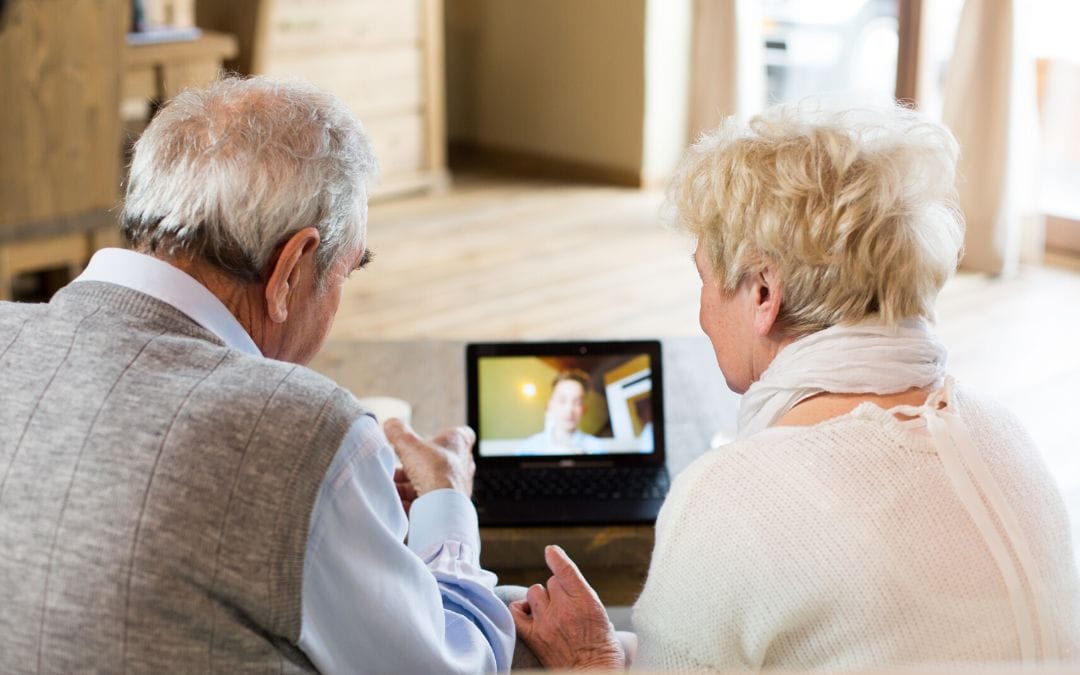Since the earliest cases of COVID-19, doctors cautioned that those 65 and older must self-quarantine since they are among the most susceptible to this virus. While the physical benefits of social distancing for seniors are undeniable—their health depends on it—the logistics can be just as stressful as the Coronavirus threat itself.
Senior living communities, like assisted living and memory care, can provide community living with care for older adults. When seniors live alone, they may face isolation, difficulty accessing food or healthcare, as well as the burden of navigating a confusing and unprecedented environment. In fact, those over 65 are often more likely to live alone than other demographics, reports the Administration for Community Living, which can be a hindrance to their well-being in times of uncertainty.
Health and safety for the older population are exactly what senior living communities offer. The following factors explain how residents can benefit from community living with care.
Social Connectivity Even While Distancing
Although measures do need to be taken to minimize older adults’ exposure to the virus germs, too much isolation can be harmful. Loneliness may cause heart conditions, obesity, high blood pressure, anxiety, depression, and Alzheimer’s disease, according to the National Institute on Aging. However, inside a community that’s protected from outside harms, residents can isolate together, which allows for connection, even while taking precautions.
Staff and residents can find safe, creative, and fun activities to enjoy as a group. Take, for example, one assisted living community’s life-size game of Hungry Hungry Hippos that went viral on social media recently. This shared camaraderie amid physical distancing can make separation from outside family members and loved ones easier.
Moreover, senior living community staff can help residents use technology platforms to ensure they connect with their family and friends. (Learn more about Vineyard’s connectivity programs).
Provision of Necessities Such as Meals and Supplies
The risk of contracting COVID-19 is real, but it’s not the only issue that many seniors face. “The specter of hunger and malnutrition looms, as sites serving group meals shut down, and seniors are unable or afraid to shop for groceries,” points out Kaiser Health News. Additionally, “as the healthcare system becomes preoccupied with the new Coronavirus, non-urgent doctors’ visits are being canceled. Older adults who otherwise might have had chronic illness checkups could now deteriorate at home unnoticed.”
There are no barriers to proper food and nutritional needs in senior living communities because of on-site dining services. What’s more, residents have access to medical checkups, treatments, and prescriptions without a prolonged wait time.
Expert Level Guidance and Trusted, Individual Care
In addition to the medical resources accessible in senior living communities, residents also have emotional support, reassurance, and guidance of professional staff members. This keeps them abreast of new information, protocols, and developments. On-site management also helps to clarify questions or confusions about warnings and safety measures.
The World Health Organization also notes that seniors with cognitive decline or dementia can “become more anxious, angry, stressed, agitated, and withdrawn during an outbreak or while in quarantine.” The individualized assistance and attention of community staff can be a source of relief, comfort, security, and peace of mind for those living with dementia.
Organized Leadership, Regulations, and Oversight
During a time of crisis or uncertainty, structure makes people across all demographics feel secure and safe—but this is especially true for seniors. Older adults who maintain predictable routines are less depressed, anxious, or physically impaired than those without routine, according to recent research.
A senior living community has a buffer of centralized, organizational leadership to give residents the structure they need in tumultuous circumstances. Even as the outside world changes and fluctuates, community living with care ensures that seniors can still experience regulated order in their daily lives. An established, easy-to-follow routine also fosters independence, purpose, and confidence in older adults because they know there’s a structure in place.
The Benefits of Community Living With Care for Seniors
The senior population is more vulnerable than most to the risk of COVID-19, but they do not have to face this threat alone. Senior living communities prioritize the health, safety, connections, and quality of life for their residents. In times of uncertainty—whether it’s a global pandemic or some other unforeseen issue—older people need the trusted companionship of a reliable, supportive community.
Contact your nearest Vineyard community today to learn more about how community living with care provides a safe, secure, and engaging environment for seniors.

